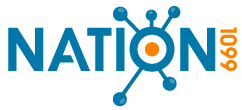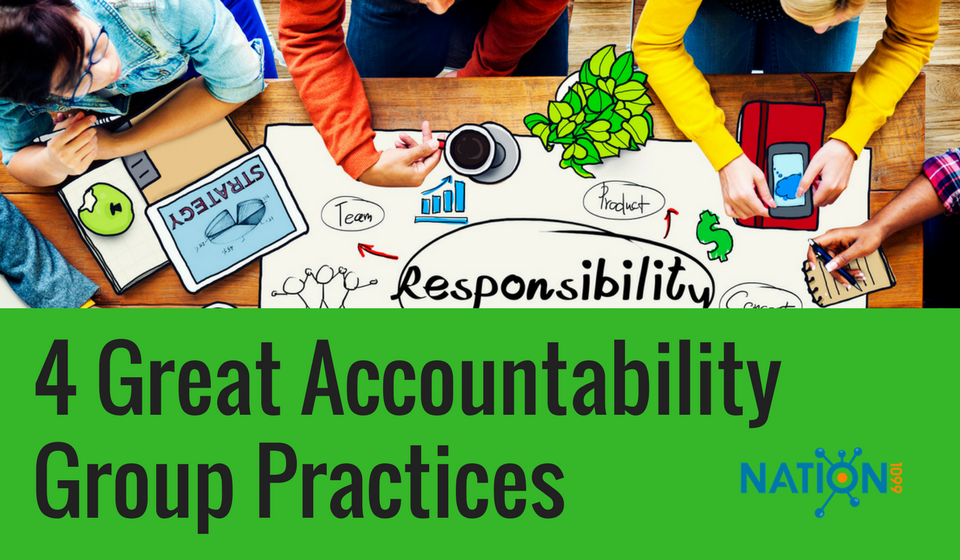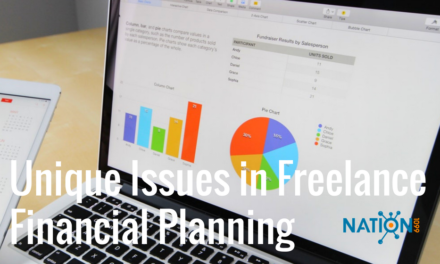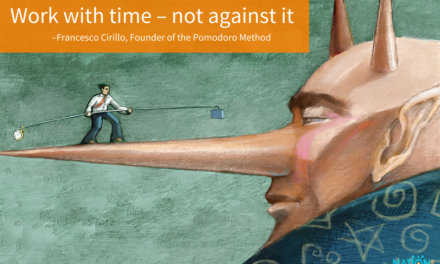I hadn’t heard the term “accountability group” or “mastermind group” until I was already a member of two.
Both groups were set up as places for us to find accountability with others in our profession — one for new solopreneurs and one for freelance writers. While we certainly brainstorm business strategies, advise each other on rates, collaborate on marketing and refer each other work, both accountability groups have one overall objective: To help each other meet our goals.
As freelancers and solopreneurs, we walk a fine line between meeting client deadlines and motivating ourselves to tackle business growth projects like marketing, guest posting and networking. That’s where finding accountability comes in.
Whether you’re starting an accountability group from scratch, joining an existing group or looking to be more productive with your current group, here’s how to get the best results.
Just getting started? Check out: Why You Need to Find a Mastermind Group (And How to Do It)
Choose a focus
Everyone who is participating in the accountability group should be on the same page about what you’re holding each other accountable for. This will generally be business goals — although you may want to include some lifestyle goals, as well.
For example: Both of my accountability groups include categories to help each other meet health and wellness goals as well as growing our businesses.
This has been totally invaluable. After all, when you work from home and set your own schedule, work-life balance can be a little off kilter. It’s good motivation to know you’ll report on whether or not you left the house this week.
Along with setting areas of focus, you should also agree on levels of focus. Do you want members to report on quarterly goals, or provide accountability for daily to-do lists?
Personally, I think it’s better to use your accountability group’s accountability mojo for big picture goals, rather than to-do lists. After all, clients and other deadline-generators should offer you plenty of motivation there. It’s the big business-building goals that most of us seem to struggle with.
Be more productive with a system that works for your group
Both of my accountability groups manage our accountability check-ins differently, and both ways work well for the group dynamic and goals. If you’re just getting started, you might want to try one of these two ways — or brainstorm something that would work better with your other group members.
Both of my accountability groups use a Google group so we can have threaded conversations.
In the first group, every Monday one of us starts a thread called “The Weekly [Date].” There, each of us:
• gives a little recap of the week
• lists accomplishments for the last week
• lists goals for the current week
• sets an intention for “me time”
(That last point is a new addition, as we all realized we were suffering from work-life balance craziness and needed some encouragement to do something just for us.)
In the second group, we start communal “Goals for [Year]” and “Goals for [Q1/Q2/etc]” posts, where we all: list and discuss our objectives for the year or the quarter. Then, each of us start our own monthly goals thread where we break down our yearly and quarterly goals. We do weekly check-ins within that monthly goals thread to help us stay on track.
Troubleshoot each other’s goals
Accountability isn’t just about checking off tasks — it’s about helping each other stay focused on the big picture.
The most powerful experiences I’ve had with my accountability groups are the ones where we set aside the cheerleading and have real talk about why something isn’t working.
After I had listed “send book contract to publisher” in my weekly goals for nearly a month, one of my accountability partners asked why I was hesitant about a book deal I had previously been so excited about. Answering her question forced me to realize just how much I was struggling with the project. I finally called my editor up to say I couldn’t take it on.
Another time, one member had been working for several months towards launching a big information product. On top of running a successful and busy freelance business, she was starting to get overwhelmed by the enormity of her goal. Eventually, the other two of us chimed in and convinced her to rethink her strategy of huge projects, and replace it with one of small, bite-size steps that would add up to the same thing eventually, but not be so overwhelming on top of her existing workload.
As solo business owners, sometimes we are too close to our own businesses to know when it’s time to change strategies or move on. That’s where an accountability group can play a huge part.
I’m so grateful every time someone in my accountability group asks, “Do you really have time to take that on?” when I come to them with yet another amazing, time-consuming idea.
One last note: online works, but in-person is powerful
Both of my accountability groups are virtual, by necessity of location. In one group, we are spread across the Pacific Northwest. In the other, we are spread across the northern hemisphere. The majority of our correspondence in both groups is done through Google Groups– but we make time for in person communication, too.
Those of us in the Pacific Northwest were friends before we started our accountability group. We all used to live in the same city, but now we make time at least once a year for a long weekend business retreat. These in-person, wine-and-coffee-fueled brainstorming sessions/sleepovers are incredibly fertile ground for the next year’s business goals.
Even if you can’t get together in the flesh, you can still benefit from the in-person experience. The other group has yet to meet in person. That’s because we’re spread between Oregon, Ontario, and Israel. What we do instead is hold regular Skype calls to catch up and check in — and again, the real-time meetings are really helpful for clarifying goals and brainstorming next steps.
Pro Tip: We sometimes hold coworking dates, where we Skype chat while busting out backburner tasks like sending out letters of introduction or updating our portfolios. It’s a great way to burn through busywork.
As a solo professional, it’s critical to build a support network that provides formalized accountability and the resources that allow us to be more productive. You might even think of it as a secret weapon for success.

Jessie Kwak
Jessie is a freelance writer who specializes in B2B marketing copy and food and travel blogging. She is also an avid fan of biking, science fiction, and beer.











